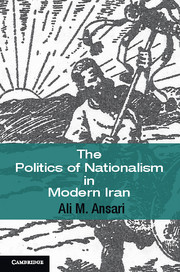4 - The Age of Contestation
Published online by Cambridge University Press: 05 November 2012
Summary
He issued a statement there. Let me read some part of it and you can see how it was. He said, ‘As long as I am king, I will not allow the people who are under my command to mock other nation’s norm or humiliate those nations under my rule’. He was saying that he respected other nations. He said, ‘I will not impose my kingdom on any other nations and I will not wage war because they do not accept my kingdom.’ We know that many nations asked him to rule them … He said … ’I will not allow anyone to do injustice to others within this span. I will restore the rights of the oppressed people and confront oppressors.’
President Ahmadinejad on Cyrus the Great, 2010Introduction
In 1906 the Constitutionalists launched a political revolution in which the structures of government changed but the personalities largely remained in place. In 1979, the personalities were replaced but the fundamental structures remained. Put simply, it was the Shah that fell, not the State. Continuities do not preclude change, but given the great stress on change which participants and observers alike have ascribed to the movement which resulted in the overthrow of the Shah, it is worth pausing and reflecting on the inheritance of the ‘Islamic Revolution’. As noted above Arjomand has cogently and convincingly argued that the revolution strengthened and further centralised the bureaucratic apparatus inherited from the Pahlavis. If anything the bureaucracy grew larger, and for all the talk of the oppressed and disenfranchised, the new state was no more enamoured of ideas of decentralisation and local empowerment than the politicians who had emerged in 1941 to criticise Reza Shah. Even the tribes, long perceived as the victims of state oppression, were encouraged, with government help, to ‘settle’. Elements of the bureaucratic state, such as conscription, centralisation, and taxation – and despite attempts to suggest that this could be replaced by a system of Islamic taxation – were all retained and reinforced, as were the majority of the reforms implemented from 1906 through to 1941.
- Type
- Chapter
- Information
- The Politics of Nationalism in Modern Iran , pp. 198 - 284Publisher: Cambridge University PressPrint publication year: 2012



